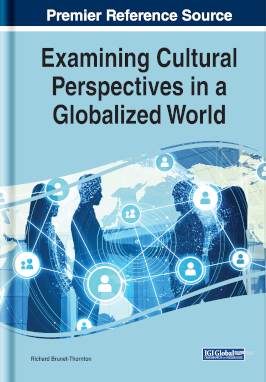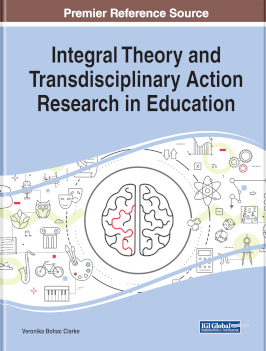Chapter 2 Emerging management concepts in an era of global transitions:Co-management of natural resources and the Swedish management style.
Reference Cordeiro, C. M. (2021). Emerging management concepts in an era of global transitions: Co-management of natural resources and the Swedish management style. In Saruchera, F. (Ed.), Advanced Perspectives on Global Industry Transitions and Business Opportunities (pp. 21-39). IGI Global. http://doi:10.4018/978-1-7998-4303-0.ch002
Abstract In a period of global transition, this chapter discusses emerging management practices in the context of natural resources management in international business. In the past decades, the co-management concept and practice have been of increasing interest to scholars in ecology management and marine environment management. In the late 1980s, the Swedish management style began to be explicitly de-bated with scholarly interest, particularly in the services industry after observing successful business practices. The literature on the co-management of natural resources and the Swedish management style in multinational enterprises point promisingly towards parallel management strategies applied in dis-tinctly different working environments and contexts. Based on empirical data, this chapter’s objective is to highlight and distill from natural resources co-management and the Swedish management style a shared management best-practice approach in working contexts that have multiple actors and stakehold-ers who hold multicentric agendas.
Chapter 9 Culture from a value systems perspective: A study of CATCH, an interdisciplinary research project in fisheries and aquaculture in Norway
Reference Cordeiro, C.M. & Sogn-Grundvåg, G. (2020). Culture from a value systems perspective: A study of CATCH, an interdisciplinary research project in fisheries and aquaculture in Norway. In R. Brunet-Thornton (ed), Examining Cultural Perspectives in a Globalized World. Hershey, PA: IGI Global. doi: 10.4018/978-1-7998-0214-3
Abstract International interdisciplinary projects (IDR) are a microcosm of multicultural landscapes. Through a culture theories perspective, in particular, viewing culture as a system of explicitly and implicitly coded values, this chapter conveys the processes and results of a study that investigates and uncovers the management strategies of an IDR project, CATCH. The study of culture from a value systems approach enables a more subtle and nuanced approach to the analysis and framing of cultural heterogeneity in the context of an IDR project, beyond the often dichotomous, cultural dimensions construct. Due to the multiple actors in an IDR project, the example of CATCH illustrates too, a more nuanced view of cultural filters that arise from each academic discipline. Using the culture as value systems perspective, this chapter shows how multicultural landscapes and different resulting knowledges can be leveraged towards an integrated worldview when solving challenges in a globalized world with limited resources.
Reference Cordeiro, C.M. (2019). An Integral Theory approach to the feedback system in supervising doctoral students in the Nordic higher education context. In V. Bohac Clarke (ed), Integral Theory and Transdisciplinary Action Research in Education, pp. 271-286. Foreword by Ken Wilber. Hershey, PA: IGI Global. doi: 10.4018/978-1-5225-5873-6
AbstractFeedback giving makes an important part in the context of higher education thesis writing, in particular, doctoral thesis writing supervision. In the past decade, European level standardization higher education policies have encouraged a pedagogy paradigm shift towards a more student-centered learning approach. Within the Nordic context of higher education, feedback giving from supervisor to student has often been studied from the perspective of the supervisor, as a small part of the overall doctoral degree program. This study uses findings from foundational pedagogy literature in the field of Nordic pedagogy studies in combination with empirical data findings from interviews, and maps elements of the doctoral thesis writing feedback system from an integral pluralism approach. The integral model of a feedback system to a doctoral thesis supervision is novel for the Nordic pedagogy literature and it is meant as complement to the current canon of literature on Nordic pedagogy.
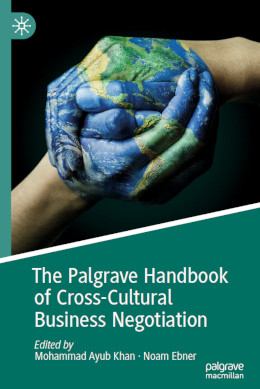 Chapter 16 Negotiating with managers from Singapore
Chapter 16 Negotiating with managers from Singapore
Reference Cordeiro, C. M. (2019) Negotiating with managers from Singapore. In, Mohammad Ayub Khan and Noam Ebner (eds), The Palgrave Handbook of Cross-Cultural Business Negotiation. Palgrave Macmillan, pp. 353-381. eBook ISBN 978-3-030-00277-0, doi 10.1007/978-3-030-00277-0
Abstract This chapter focuses on the Singaporean negotiation style and the practical approaches one could take when negotiating in the Singapore context. The Singaporean negotiator’s mindset, whilst individual, remains embedded in and shaped by the discourse contexts of the Singapore government (‘The Singapore Way’), and its business environment that is shaped by forces of regionalization and globalization. Singapore’s multiracial, multilingual background provides a unique business environment that together with its geolocation, places the country at the heart of an increasingly interconnected Asia and Southeast-Asia. The central theory espoused in this study is based in functional grammar that views language as a social semiotic, as a tool for semogenesis or meaning-making. Language is an inherent feature of the human faculty, where most social functions are communicated and acted upon through language-in-use, across various forms of negotiations. Semogenesis and the communication of meaning is central to successful negotiations. Taking as case examples respondents from the Singapore business community as well as prominent individuals serving in the Singapore government, this study uses language as a theory and framework of meaning-making to uncover the mind-set of the Singapore negotiator, studied in relation to the supporting contexts of the Singapore business environment. Rather than a normative, static cultural-dimensions construct approach that tends to perpetuate cultural stereotypes, this study illustrates how the complexity of interaction in the Singapore business environment generates a Singaporean approach to negotiation that is far more nuanced in nature. The empirical findings in this study illustrate how the Singapore negotiator tends towards dialogic thinking, defined as the capacity and ability to reconcile two opposing points of argumentation where both points of view might both be true and false at the same time, depending on context of application. The Singaporean negotiating style seems to reflect the ability for pluralistic thinking and taking on multiple perspectives in a single negotiation context. This pluralistic perspectivising is presented in a four-quadrant model called the Negotiation Semogenesis System based on a functional grammar approach towards a holistic framework in the study of negotiations.
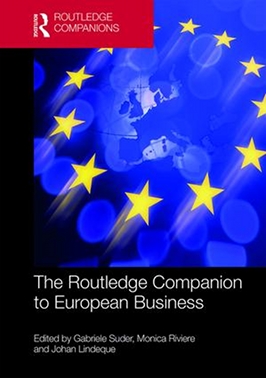 Chapter 5 On the basis of the Uppsala model: Evolution of European research models and frameworks.
Chapter 5 On the basis of the Uppsala model: Evolution of European research models and frameworks.
Reference Cordeiro, C. M. (2019). On the basis of the Uppsala model: Evolution of European research models and frameworks. In, Gabriele Suder, Monica Riviere and Johan Lindeque (Eds), The Routledge Companion to European Business. London: Routledge, pp. 55-68. ISBN: 978- 1- 138- 22658- 6 (hbk) | ISBN: 978- 1- 315- 39730- 6 (ebk)
Abstract, chapter 5 Chapter 5 presents readers with an overview of current research frameworks and models used in the study of firm internationalization (that encompasses regionalization) processes, and illustrate an evolution of the knowledge / thought paradigm towards future applications and use of these models in future studies of organization processes in the European business environment. In particular the chapter traces the elements of the Uppsala model (UM) of firm internationalization in thought evolution, illustrating how the elements of firm internationalization might be more comprehensively and dynamically applied to the European business context.
Abstract, book ”International Business is a well-established research field, in which regionalisation has recently gained significant prominence. Europe comprises marketplaces characterised by unique patterns of highly advanced economic integration. No other marketplace in the world has progressed to the same levels of harmonisation across sovereign countries and economies. European Business is a subject in its own right with its own research momentum. Contemporary research evidences that firms view Europe as a challenging, mostly – yet not entirely – mature market location. Yet this location, often seen from a multi-country perspective, is subject to complexities revealing strategic corporate strengths and weaknesses. Theory, concepts and models known from International Business hence often vary in their applicability and relevance in this business environment. This comprehensive reference volume brings together a global team of contributors to analyse and overview the key issues, themes and phenomena that affect business in Europe. With interdisciplinary perspectives, the book covers crucial themes that any European Business research needs to acknowledge, including business cultures and identity, entrepreneurship and innovation, M&A and institutional trends, European HRM, migration, climate change issues, Brexit, and more. The selection of authors, from 17 countries worldwide, reflects the international scope of this research field and its agenda. A unique resource, this book provides an essential guide to researchers, research students and scholars of business and the social sciences, as well as the informed business community.” (Suder, Riviere and Lindeque, 2019)
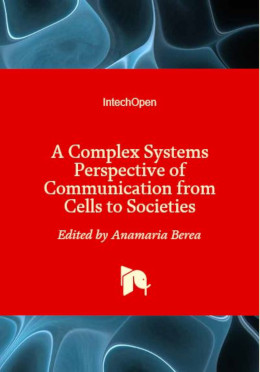
Chapter [Intech Open] Toward a Systems Perspective of Culture and Communication in the Field of International Business Studies
Reference
Cordeiro, C. M. (2018). Toward a Systems Perspective of Culture and Communication in the Field of International Business Studies. In Anamaria Berea (ed), A Complex Systems Perspective of Communication from Cells to Societies [Online First], IntechOpen, DOI: 10.5772/intechopen.82179.
Abstract Biology and culture co-evolve, affecting collective social behaviors in the way we interact with others and with our environment. The working assumption in this study is that biology and culture provide the environment in which individuals interact/communicate. Human communication is thus both created and circumscribed by culture. Cultural values differ between different groups of individuals. This relativity in culture is illustrated by various social artifacts and resulting differences in socio-communicative behaviors that often leads to miscommunication between individuals of different cultures. This inherent relativity of culture has also posed a methodological challenge for researchers who study culture and thus communication management, particularly within the field of international business (IB) studies, where transactional behavior makes up for much of human behavior. Global challenges and a changing business environment due to converging technological platforms place increasing pressure on the need to revisit the cultural dimensions construct. The aim of this chapter is to give readers an overview of current frameworks of how culture is studied within the field of IB and how this perspective can be broadened with ideas drawn from other disciplines including social-biology, quantum theoretical physics and psychology. It revisits current culture research strategies and suggests a model in which relativity in culture can be addressed through a systems perspective of research.
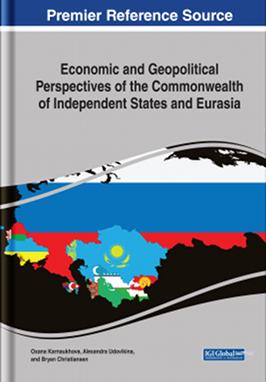 Chapter 6 Framing of National Image in a Climate of Socio-Political Uncertainty: A Study of IKEA and Volvo Car Corporation in Swedish and Russian News Media
Chapter 6 Framing of National Image in a Climate of Socio-Political Uncertainty: A Study of IKEA and Volvo Car Corporation in Swedish and Russian News Media
Reference Lindström, N. B., & Cordeiro, C. M. (2018). Framing of national image in a climate of socio-political uncertainty: A study of IKEA and Volvo Car Corporation in Swedish and Russian news media. In O. Karnaukhova, A. Udovikina, & B. Christiansen (eds), Economic and Geopolitical Perspectives of the Commonwealth of Independent States and Eurasia, pp. 137-156. Hershey, PA: IGI Global. doi:10.4018/978-1-5225-3264-4.ch006
Abstract The climate ripple of socio-political relations between countries can be seen to directly influence trading and international business relations. Discourse within the socio-political realms reflects in discourse within the economic realms. A common channel through which such perspectives are mediated between the political realms, corporate relations, and public opinion is the news media, both traditional and new, such as social media and Internet publishing. This chapter examines and compares how major business newspapers in Sweden, Dagens Industry (DI), and two business newspapers in Russia, Kommersant (Ъ-Газета – Коммерсантъ) and RBC (РБК) represent Sweden’s national image between 2014-2015, a period of uncertain socio-political relations between Russia and the Nordic Eurasian states, in particular, Sweden, in the process of the annexation of Crimea by the Russian Federation in 2014.
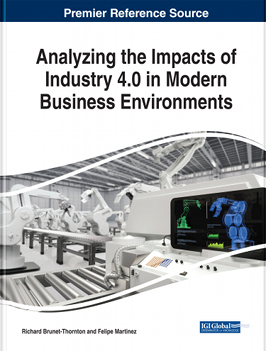 Chapter 14 Positioning Theoretical Perspective in Academic Writing: Teaching Culture Theory in International Business Studies in the Context of Industry 4.0
Chapter 14 Positioning Theoretical Perspective in Academic Writing: Teaching Culture Theory in International Business Studies in the Context of Industry 4.0
Reference Cordeiro, C. M. (2018). Positioning theoretical perspective in academic writing: Teaching culture theory in International Business studies in the context of Industry 4.0. In R. Brunet-Thornton, & F. Martinez (eds), Analyzing the Impacts of Industry 4.0 in Modern Business Environments, pp. 283-303. Hershey, PA: IGI Global. doi:10.4018/978-1-5225-3468-6.ch014
Abtract A main challenge for academic writing for students at master thesis level is to find the right perspective from which to launch the argument of the thesis. In the context of international business (IB) studies, the eclectic theoretical paradigm of the field offers students myriad frameworks from which to frame their research questions. The purpose of this chapter is to illustrate how perspective in academic writing can be taught and learnt in a systematic manner. Taking the example of the teaching of culture theory in international business (IB) studies, this chapter illustrates how the deictic or “pointer” function of the pronoun system in language can be used to help perspective research position and research design.
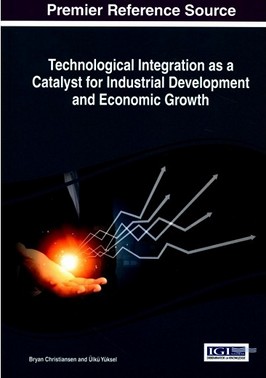 Chapter 7 Work Engagement in the Era of Industry 4.0: Mapping Perspectives and Knowledge in E-Strategy Implementation
Chapter 7 Work Engagement in the Era of Industry 4.0: Mapping Perspectives and Knowledge in E-Strategy Implementation
Reference Cordeiro, C. M. (2017). Work Engagement in the Era of Industry 4.0: Mapping Perspectives and Knowledge in E-Strategy Implementation. In B. Christiansen & Ü. Yüksel (eds), Technological Integration as a Catalyst for Industrial Development and Economic Growth. Hershey, PA: Business Science Reference, pp 189-206. doi: 10.4018/978-1-5225-2319-2
Abstract Understanding the human factor becomes increasingly important in technological innovation processes. To that end, different types of knowledges are needed in order to build a more engaging work environment for future productivity. This chapter brings theoretical and empirical insight into the processes of developing software tools for computer-supported cooperative work (CSCW), enhanced for cross-departmental functionality in a European founded multinational enterprise (MNE). Working with the assumption that knowledges are obtained via different perspectives, the deictic function of Pronouns is applied in the Götheborg IV (G4) model. The model shows how relative perspectives can be defined and applied in a systematic manner towards an understanding of greater work engagement for future human capital productivity. Three departments with global operations in a European enterprise is studied in how they manage human capital productivity in relation to technological advancements.
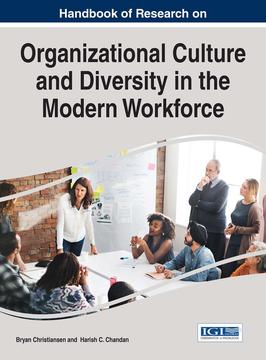 Chapter 10 Relativity in Perspective in Culture Theories: The Götheborg IV Model
Chapter 10 Relativity in Perspective in Culture Theories: The Götheborg IV Model
Reference Cordeiro, C. M. (2017). Relativity in Perspective in Culture Theories: The Götheborg IV Model. In B. Christiansen & H.C. Chandan (eds), Handbook of Research on Organizational Culture and Diversity in the Modern Workforce. Hershey, PA: Business Science Reference, pp 217-238. doi: 10.4018/978-1-5225-2250-8
Abstract Changing business environments due to the influence of technological advances have increased aware- ness amongst scholars and practitioners for a need to re-perspectivise culture beyond the normative dimensional construct. This chapter discusses the relative perspectives of culture in the dimensional and emergent theoretical frameworks. The purpose is to reconcile the two frameworks towards a ho- listic perspective of the study of culture in the field of international business studies. In illustration of how both frameworks are needed in order to understand human behaviour in the era of Industry 4.0, the processes of firm globalisation are discussed in relation to the elements of the Uppsala model and the Götheborg IV model. This chapter provides readers with a novel means of conceptualising culture beyond the dimensional construct. The model presented in this chapter can be used to help identify gaps in knowledge with regards to culture in organisation management. Practitioners are invited to apply the model supplied in this chapter to their consultative work where applicable.
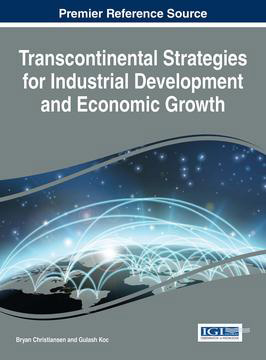 Chapter 4 Perspectives in Managing State Global Competitiveness: Singapore and the Götheborg IV Model
Chapter 4 Perspectives in Managing State Global Competitiveness: Singapore and the Götheborg IV Model
Reference Cordeiro, C. M. (2017). Perspectives in Managing State Global Competitiveness: Singapore and the Götheborg IV Model. In B. Christiansen & G. Koc (eds), Transcontinental Strategies for Industrial Development and Economic Growth. Hershey, PA: Business Science Reference, pp 58-78. doi: 10.4018/978-1-5225-2160-0
Abstract Singapore ranks second after Switzerland in the Global Competitiveness Index 2015/6, placing it ahead of some advanced economies of the Nordic region. Singapore’s development model has been studied mostly from an economic perspective in specific socio-political contexts. Part of the Singapore gover- nance strategy in managing its differential (heterochronic) developmental complexity at domestic and international levels is through its national discourses. These national discourses are multileveled and targeted at different spheres of influence. This chapter brings a complementary language in interna- tional business perspective with theoretical foundations in biological evolution theory applied to state governance. It uses a four-quadrant Götheborg IV model of visualization, illustrating how Singapore’s national discourses act in dialogic complementarity, bolstering state competitiveness. It shows how state development complexity is managed in Singapore’s current vision of a Smart Nation, with its ambition of becoming a global first in future living in the global circular economy.
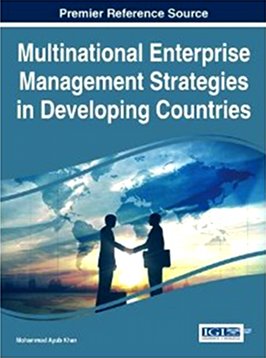 Chapter 11 The Götheborg IV (G4) Model and the Function of Language in the Globalization Process of the Firm: The Case of Swedish MNEs.
Chapter 11 The Götheborg IV (G4) Model and the Function of Language in the Globalization Process of the Firm: The Case of Swedish MNEs.
Reference Cordeiro, C. M. (2016). The Gotheborg IV (G4) Model and the Function of Language in the Globalization Process of the Firm: The Case of Swedish MNEs. In M. Khan (ed.), Multinational Enterprise Management Strategies in Developing Countries (pp. 215-236). Hershey, PA: Business Science Reference. doi:10.4018/978-1-5225-0276-0.ch011
Abstract This chapter contributes to the theory of a firm’s globalization processes reflected in the Uppsala Globalization Process Model (UGPM). The Gotheborg IV (G4) model is introduced, mapping the knowledge zones of the UGPM in a four quadrant axis model. Using language in its meta-capacity as theory and framework of analysis the G4 model makes a distinction between the words ‘enterprise’ (Hn) and ‘subsidiary’ (H1), addressing the core features of firm globalization with geographically dispersed foreign subsidiaries and globally coordinated activities of manufacturing, sourcing and R&D capabilities. With the distinction between Hn and H1, the G4 model is able to present eight perspectives of the globalization process from interior and exterior to the enterprise and subsidiary. As method, this chapter will show how using the G4 model results in a richer analysis and findings from qualitative data. In this study Swedish top-level managers working in Asia show how they foster an organization culture of continuous learning and change that supports the MNE’s globalization efforts.
 Chapter 12 Chinese Wisdom, World Quality: A Visual Semiotic Analysis of China’s “Zou Xiang Shi Jie” (Going Global).
Chapter 12 Chinese Wisdom, World Quality: A Visual Semiotic Analysis of China’s “Zou Xiang Shi Jie” (Going Global).
Reference Cordeiro, C. M. (2016). Chinese Wisdom, World Quality: A Visual Semiotic Analysis of China’s “Zou Xiang Shi Jie” (Going Global). In M. Khan (ed.), Multinational Enterprise Management Strategies in Developing Countries (pp. 237-259). Hershey, PA: Business Science Reference. doi:10.4018/978-1-5225-0276-0.ch012
Abstract The typical feature of emergent economies is a slow, apparent transformation from being predominantly a home base of Foreign Direct Investments (FDI) to becoming more home markets for various firms that expand internationally. In this aspect, China differs from its Asian forerunners. Without question, the most rapid development in recent decades within East Asia and the global economy as a whole is the (re-)emergence of China. While most studies on growth strategies for multinational corporations from emerging economies come from the perspective of economic strategies in international business, this study offers a novel perspective by using visual semiotics as a framework of study and analysis of data. It uses theories of social semiotics borne of the traditions of linguistics to conduct a systematic analysis of the representations of China’s desire to go global with their automobile industry. The company in focus is China’s Zhejiang Geely Holding Group (Geely) in the years between 2007 to 2011, just prior to an after its acquisition of Volvo Car Corporation (VCC).

